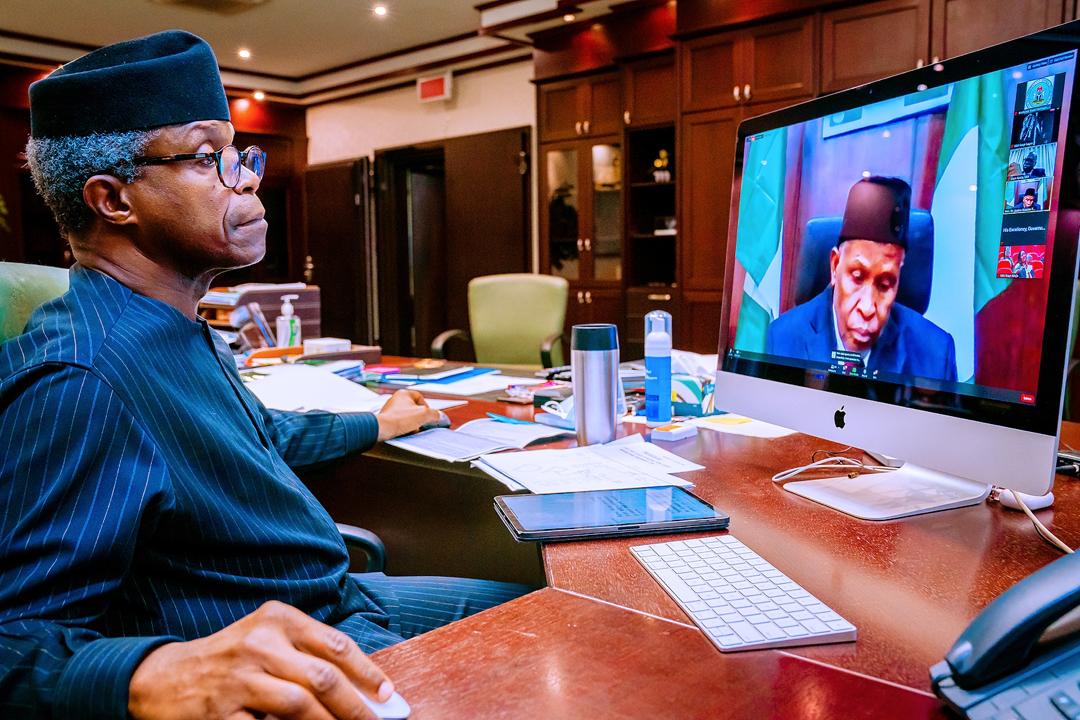Business
Federal Government approves 2.3 trillion for Rural Electrification

The Federal Government says it plans to Electrify Rural Communities with 2.3Trillion under the Economic Sustainable Plan (ESP) being coordinated by the Office of the Vice-President, Prof. Yemi Osinbajo.
The Minister of State Power, Mr. Goddy Jedy- Agba OFR, disclosed this in Abuja on while commissioning the first 12KWP Volsus Solar for Health (VSFH) Mini-grid with 58 KWH Battery Bank at the Primary Health Centre (PHC), Karu, FCT.
He said as part of the Ministry’s effort to improve power, and to provide Solar House Systems (SHS) to five million homes across unserved and underserved communities in Nigeria, a Committee had been setup to restructure the Federal Ministry of Power and provide in-depth oversight for its Agencies.
“This is because if you grow these Communities, then businesses would spring up, the health sector will perform better and you know what the result is, improved living conditions”, the Minister said.
“Recent Surveys across some of these rural communities have shown that interestingly, the rural dwellers were more likely to pay their electricity bills without complaining than those in Urban Areas where power operators are tackling the challenges of energy theft and meter bypass”.
While speaking on the project, Jedy-Agba said that Federal Government is supporting critical initiatives, and it is in this light that the Ministry is supporting Volsus Energy Limited, a solar and renewable energy start-up firm, towards the “light- up” of communities across the country.
He stressed that reliable power supply is essential across health facilities to increase their work pace, “At this period when Nigeria is battling to flatten the COVID-19 pandemic and to completely eradicate it”.
He further said that Primary Health Centres (PHCs) were critical facilities in rural communities as they are the first sign of Government’s effort in providing sustainable health care to citizens, lamenting that inadequate power supply to them has been one of the challenges the facilities faced.
“I was informed that at a time, this Karu Primary Health Centre had to suspend night shift because of the epileptic power supply and the challenges that come with that, i believe that this is now a thing of the past with the commissioning of 12 Kilowatts power (KWH) solar mini-grid with 58 kilowatts (KWH) battery bank”, he said.
Earlier in his address, the Chief Executive Officer (CEO), Volsus Energy Limited, Engr. Tomiwa Bayo-Ojo said the initiative was conceived towards improving Nigeria’s health system while deepening the fight against COVID-19 Pandemic.
He explained that the components of the mini-grid facility consist arrays of solar panels that could generate up to 12KWP energy with the battery bank capable of providing 24 hours electricity and could last for 58 hours at its maximum load point without sunshine.
“What this means is that even if there is no sunshine for more than two days, the facility will still power the health Centre”, he said.
Bayo-Ojo noted that prior to the installation, access to uninterrupted power had been the bane of the Centre especially as it could not operate optimally.
“However, the Volsus Solar for Health (VSFH) mini-grid is now providing 24 hour electricity to the ward, the labour room, the laboratory, and the entire building. “There is also the component for a refrigerator to improve the storage process of vaccines for routine immunization at the Centre”, he said.






